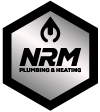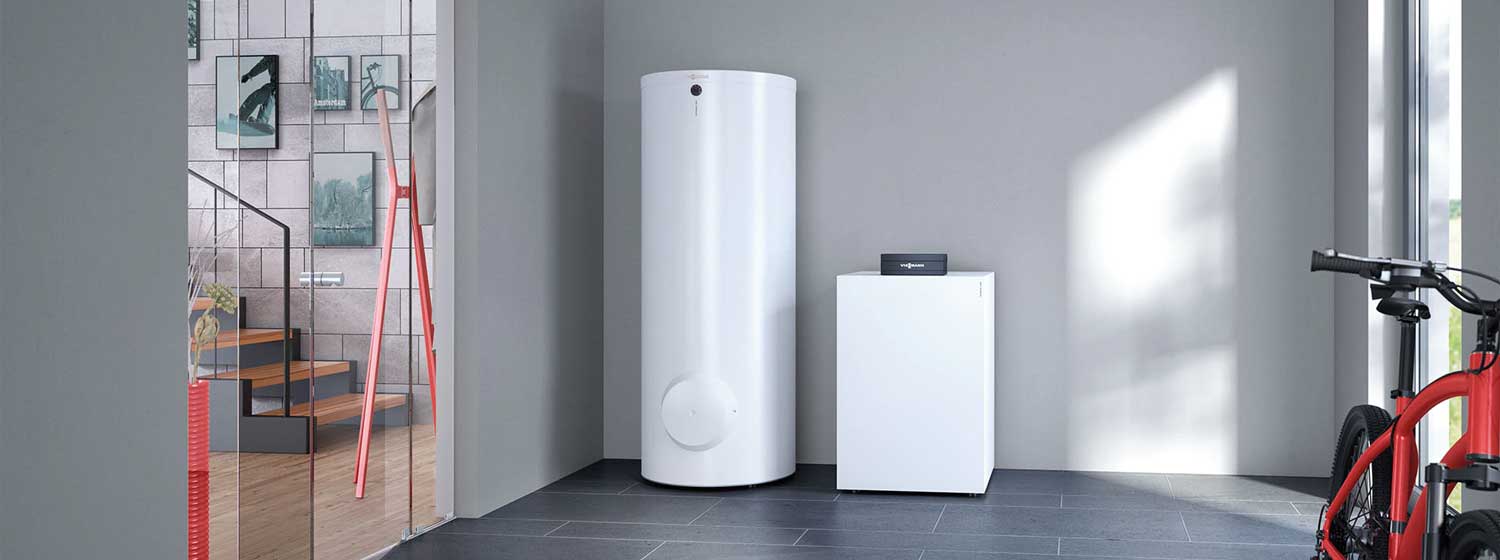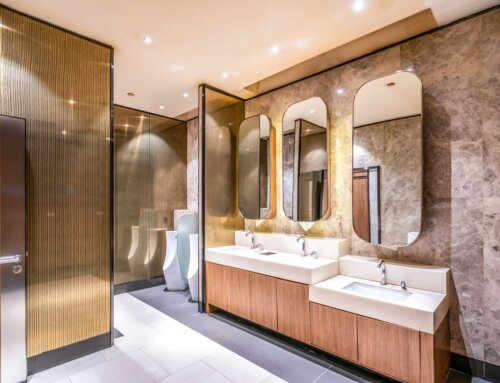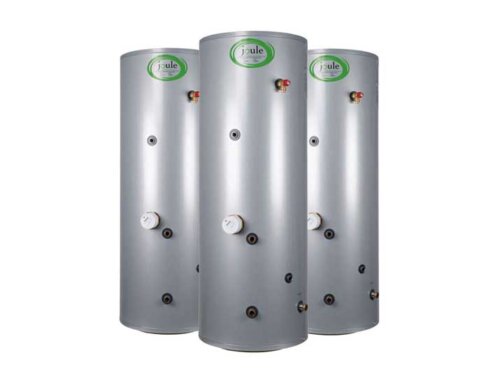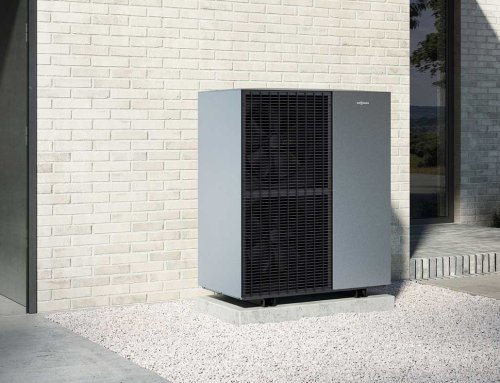Geothermal Heating Systems – Table of Contents
- How Geothermal Heating Works
- Types of Geothermal Systems
- Key Reasons to Install
- System Components
- Installation Process
- Maintenance Best Practices
Geothermal Heating – What comes to mind when you think about geothermal energy? You may picture steam-spitting geothermal pools like those found in Iceland or New Zealand. But geothermal technology now extends far beyond harnessing surface hot springs. Modern geothermal involves tapping into stable, year-round soil temperatures metres below the earth’s crust—using the ground itself as a renewable energy battery.
Geothermal heat pumps or ground source heating systems utilise the ground’s free, renewable thermal capacity to provide incredibly efficient heating during the colder winter months. During summer, the geothermal process runs in reverse, drawing out excess indoor warmth for cooling relief.
According to the latest research from the European Heat Pump Association, geothermal systems can achieve over 300% rated efficiencies compared to conventional boilers burning carbon fuels. This enables sizeable utility savings whilst promoting lower-emissions lifestyles. Read on as we explore how home geothermal energy is now readily accessed across Ireland.
How Modern Geothermal Heating Works
At a high level, geothermal heating functions by transferring low-grade heat from the ground into your home to exactly meet heating demands. This process eliminates combustion for an emissions-free and quiet home heating experience.
Geothermal uses a state-of-the-art heat pump unit coupled with underground ground loops to facilitate heat transfer (More info on – How Do Heat Pumps Work ?). An environmentally friendly antifreeze solution circulating within pipes absorbs latent ground heat before delivering it to the heat pump via metallic heat exchangers (More info on – Heat Pump Retrofit Cost Ireland).
Within the heat pump, clever refrigerant gas compression generates a temperature boost hot enough for space and water heating. Your existing radiators or underfloor heating network then receives this geothermal warmth distributed throughout your home.
Types of Geothermal Systems
There are four predominant ground loop arrangements for geothermal installations: closed vertical, closed horizontal, open well and pond/lake loops. The geography and available land space of your property dictate which ground system works best. New build construction generally opts for vertical closed loops while mature homes with sufficient available land adopt horizontal ground loops. Here’s a snapshot:
Closed Vertical Loops
Popular for new builds with limited garden space, vertical bores extend 100 metres or more underground. High-density polyethylene U-loops then integrated into these vertical bore holes.
Closed Horizontal Loops
Horizontal loops involve shallower yet longer trenches dug across larger gardens accepting coiled piping. 1-2 horizontal metres equals 1 vertical metre for heat transfer.
Open and Pond/Lake Loops
Open configurations utilise onsite well water directly. However, closed loops are generally lower maintenance. Pond loops submerge coiled piping at the water bottom to leverage natural water temperatures for heat transfer.
Key Reasons to Install Geothermal Heating
Beyond impressive efficiency stats, what motivates families across Ireland to invest in geothermal energy? Here are the top real-world benefits:
Lower Energy Bills
By extracting free renewable warmth straight from the ground, geothermal heat pumps realise 400-600% efficiency compared to gas boilers. This equates to noticeable savings on home heating costs winter after winter
(More info on – tips to ensure that your home & heating system is ready for winter).
Government Grants
In Ireland, Government grants of €6,500 cover the installation cost of qualifying air, ground or water source systems for most households to incentivise adoption of this green technology. Apartments are eligible for slightly less at €4,500. An additional €200 grant covers the required initial home heat loss evaluation.
Homes built before 2007 must complete a technical assessment before applying in order to ensure the property can benefit from a heat pump system. For properties built since 2007, no technical assessment is mandatory, but a self-declaration form is required as certification that the home meets sufficient insulation guidelines to support heat pump installation.
Overall, geothermal technology provides substantial environmental and cost-of-living benefits for Irish homeowners who educate themselves and leverage available financial incentives that lower upgrade costs for qualified households.
Minimal Maintenance
With no flames or fumes, geothermal systems avoid much of the routine maintenance associated with gas/oil boilers annually. Less wear and tear equals lower operating costs over decades.
Fewer Allergens & Healthier Air Quality
Geothermal heating eliminates combustion gases, carbon monoxide dangers, and airborne particulates leading to a cleaner indoor atmosphere with substantial health advantages. Those sensitive to air quality issues find relief.
Geothermal Heating Systems – Components of Closed Loop Systems
While geothermal configurations differ across homes, most adopt closed-loop piping paired with electric compressor heat pumps. Here are the key components in a modern closed-loop setup:
Ground Loop Pipe Network – Creates heat transfer interface between earth and refrigerant lines.
Circulating Pump – Controls flow rate of antifreeze fluid through ground loops.
Heat Exchanger – Facilitates efficient thermal energy transfer between fluids and refrigerant.
Compressor – Pressurises refrigerant to lift absorbed heat to higher temperatures for distribution.
Air Delivery System – Existing or new air ductwork carries heat pump warmth to interior spaces (More info on – What are the Disadvantages of Air to Water Heat Pumps?).
Smart Thermostat – Allows homeowners to set precise heating schedules and target temperatures.
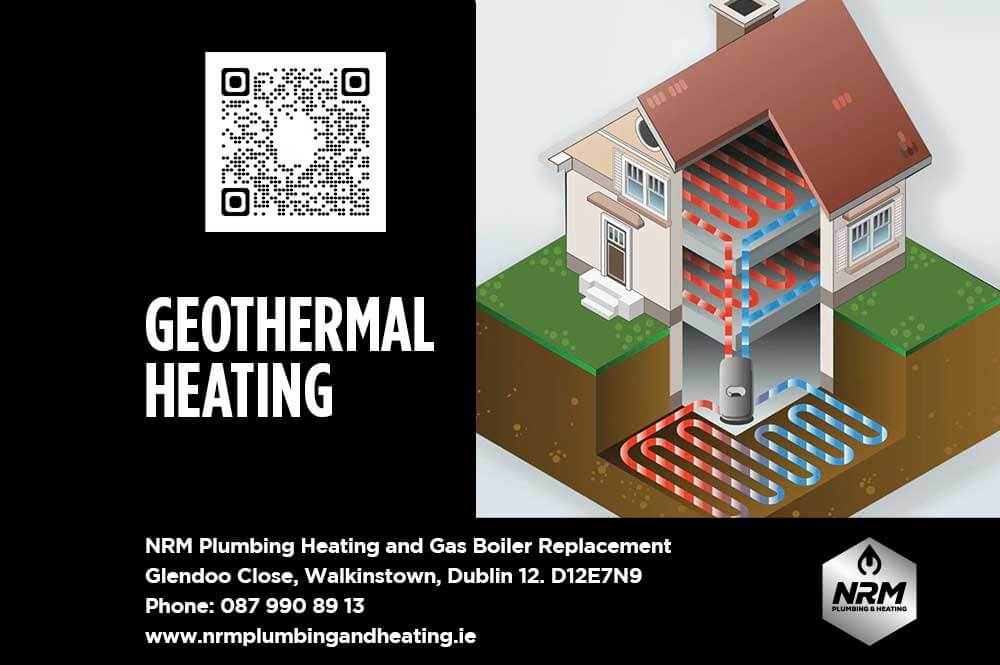
Image credit: viessmann.co.uk
Geothermal Heating Systems – Installation Process
Given their technical nature involving outdoor excavation and refrigeration engineering, geothermal systems demand expert design and installation for optimal functionality and longevity. Here is the recommended process:
Site Evaluation and Loop Mapping – Certified technicians first evaluate installation viability and map loop piping.
Loop Field Installation – Trenches get excavated or wells drilled accepting U-bend thermal pipes.
Heat Pump Integration – The external loop piping links up to the hi-tech heat pump unit indoors.
Air Delivery System – Existing or newly installed ductwork distributes heat pump airflow throughout the home.
System Testing and Commissioning – Technicians thoroughly test the system and optimise settings before owner handoff.
Geothermal Heating Systems – Maintenance Best Practices
While geothermal setups may carry higher initial investments compared to alternatives, their extensive lifespan of over 20 years paired with formidable efficiencies deliver excellent lifetime value. Like any advanced system incorporating both outdoor and indoor elements, preventative maintenance is key for optimal performance decade after decade.
Homeowners play an important role in upholding critical tasks like:
Semi-Annual Heat Pump Inspection – Technicians check refrigerant levels, outlet temperatures, and airflow rates and provide absorber coil cleaning annually pre-winter and spring. Keep records of pressure tests.
Filter Changes – Disposable filters prevent debris buildup within air handlers impacting heat transfer. Swap filters out every 1-3 months depending on model specs.
Desiccant Pack Checks – Specialised desiccant dehumidifier bags within air ducting help moderate moisture. Check desiccant packs yearly and replace deteriorating packs.
Ground Loop Observation – Visually survey vertical/horizontal external loop piping annually for pooling water or plant root infiltration which could indicate pipe damage. Higher vegetation near loops should be trimmed. Also, confirm loop box covers remain intact protecting components.
Refrigerant & Glycol Fluid Top-Offs – While closed loops are sealed, slight refrigerant or antifreeze losses occur naturally over decades of operation. Have service technicians periodically check and top up levels for optimum efficiency.
Beyond daily/weekly smart thermostat adjustments to match comfort needs, leave additional troubleshooting to certified geothermal experts should more serious system faults arise. Diagnostics and corrections might involve:
Compressor or Fan Motor Failure – Common after 15+ years, burnt-out compressor or circulator fan motors necessitate replacement by pros. Fan-run capacitors may also require swap-outs over time.
Refrigerant & Antifreeze Leaks – Slow refrigerant or ground loop glycol fluid leaks reduce capacity affecting heat delivery and requiring pressure testing plus resealing affected joints or pipes.
Flow Center Valve Repairs – Corroded pump valves or heat exchanger fittings leading to reduced flow rates across the system demand repairs or replacements.
Here is an improved conclusion with a CTA to contact NRM Plumbing & Heating for expert heat pump installation:
With over 300% greater efficiency than fossil fuel furnaces, geothermal heat pumps leverage the free, renewable heat in the ground and the earth’s crust to deliver substantial savings on home heating and cooling costs. This green technology also reduces your carbon footprint for a healthier environment.
Between robust government subsidies making installations more affordable and long-term energy savings paying back your initial investment, there has never been a better time for Irish households to go geothermal.
As certified experts in ground source heat pumps, NRM Plumbing & Heating handles complete system design, installation, and maintenance so you can enjoy all the benefits with zero hassle. Contact NRM’s heat pump specialists today to evaluate if geothermal is right for heating and cooling your Irish home. Our team is happy to address your questions and provide sound recommendations along with quotes for your project with available incentives factored in.
Related search terms: geothermal heating Ireland, ground source heat pumps Ireland, ground source heating Ireland, geothermal systems Ireland, geothermal energy Ireland, geothermal heating installers Ireland, horizontal geothermal systems Ireland, geothermal loop installers Ireland, closed loop geothermal systems Ireland, geothermal heating design Ireland, geothermal heating contractors Ireland, geothermal heating cost Ireland, geothermal grants Ireland, installing geothermal heating Ireland, understanding geothermal heating Ireland
Ever wondered about comparing Worchester Bosch Boilers….Check out our latest blog post for details
